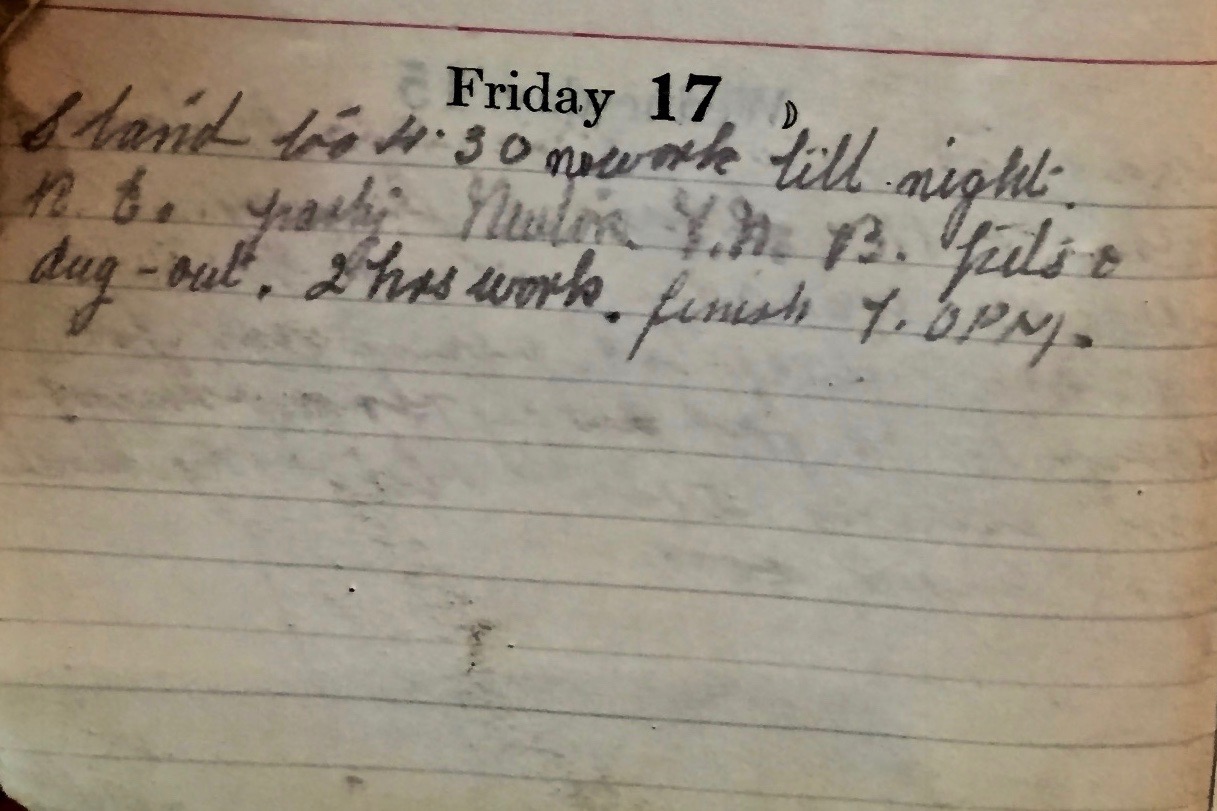Friday May 17th, 1918
Stand to 4:30. No work till night. R.E. [Royal Engineers] party Newton T.M.B. [trench mortar bomb] pits and dug-out. Two hours work, finish 7pm.
Newton Trench Mortar
Tonight Frank, as part of the Battalion Reserve, is working on building pits and dugouts for the Newton Trench Mortars. He only spends two hours on the work, which is much less effort than reported by Illtyd Davies when involved in similar work recently.
Operation Orders

The Battalion War Diary contains Operation Orders every time the 13th changes location. The most recent was issued two days ago to cover its move back to the front line. (The image is of an Operation Order for later in May.)
They are carefully worded documents with a limited, numbered circulation. ‘Operation orders deal with all strategical and tactical operations, such as marches, protection, occupation of quarters, reconnaissance, and battle. They include such information regarding supply, transport, ammunition, medical, and other services of maintenance, as it is necessary to publish to the troops; but detailed orders for such services, which it is not necessary for the troops to know, should be issued only to those directly concerned.’¹
There has been much written about officers during WWI and whether or not they could take the initiative or were forced to just follow the orders from command HQ. The section written on Operation Orders in the ‘Field Service Regulation’ manual sheds some light upon this. ‘An operation order should contain just what the recipient requires to know and nothing more. It should tell him nothing which he can and should arrange for himself….. It is usually dangerous to prescribe to a subordinate at a distance anything that he should be better able to decide on the spot, with a fuller knowledge of local conditions, for any attempt to do so may cramp his initiative in dealing with unforeseen developments.‘¹
What is interesting in these instructions, is that ‘what’ is to be done, is determined by the higher ups, ‘how’ it is to be achieved is left to those on the ground. The challenge comes when the subordinate cannot see ‘how’ a ‘what’ can be achieved. More on this later.
13th (Service) Battalion War Diary – 17th May 1918 – Sporan
The work in progress in the sector at present is completion of all belts of wire which have been started and thickening of existing ones. Trenches on the Buckle and all those which require it on Glengarry are being deepened, special attention being given to AH 14 which is more backward than most.
Screened approaches from Sporan to Claymore and from Dirk to Bowls Barrow are in hand. Splinter mosquito-proof shelters are being constructed in all camps. Sun proof dining shelters are also under construction in all camps. There was very little activity on both sides during the night. A wire patrol between Basin and Dautli Track post saw about three Bulgars up against our wire. They fled when our patrol approached.
References & Further Reading
¹ Field Service Regulations Part I Operations 1909‘, reprinted with updates in 1912, HMSO, page 26


